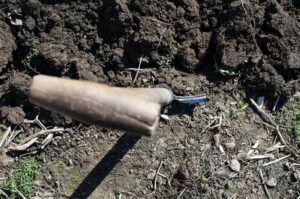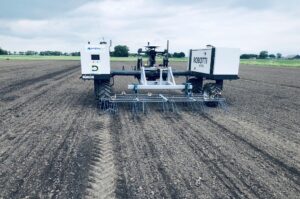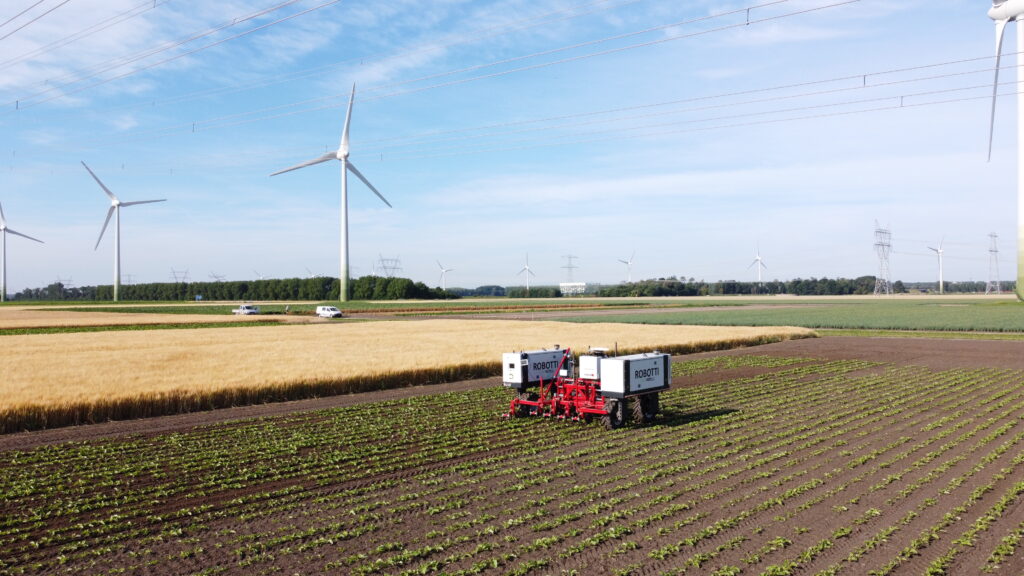The Importance of Mechanical Weeding in Pumpkin Cultivation #
Mechanical weeding is a common practice in pumpkin cultivation, and it plays a crucial role in ensuring healthy plant growth and high yields. In this article, we will explore the basics of mechanical weeding and its importance in pumpkin production. We will also discuss different mechanical weeding methods and their effectiveness in controlling weeds and promoting healthy plant growth. Whether you are a farmer, gardener, or simply interested in pumpkin cultivation, this article will provide valuable insights into the role of mechanical weeding in pumpkin production.
Farming pumpkins usually requires the technique of mechanical weeding, as it helps to control weeds and promote healthy plant growth. Mechanical weeding methods include using hand tools, such as hoes or shovels, to remove weeds manually, or using mechanical devices, such as rotary tillers or cultivators, and innovative robots, to loosen and remove weeds from the soil. Mechanical weeding is an important part of pumpkin production and can help to improve yields and crop quality.
Mechanical Weeding Methods in Pumpkin Cultivation: Hand Tools vs. Mechanical Devices #


Using hand-held tools, such as hoes, shovels, or cultivators, to remove weeds manually can be a labour-intensive process, but it has several benefits, including the ability to target specific weeds and the precision of removing weeds without damaging the pumpkin plants. Hand weeding is typically done early in the growing season, when the pumpkin plants are still small, and the weeds are easy to remove.
This helps to ensure that the pumpkin plants have enough space and resources to grow and produce healthy fruit. Hand weeding can be an effective way to control weeds in pumpkin cultivation, but it may not be suitable for large fields or for controlling dense or resilient weeds.
Hand weeding requires manual labour to remove the weeds, and this can be time-consuming and physically demanding, especially in large fields or in cases of dense or resilient weeds. Hand weeding can also be less efficient than mechanical weeding, as it may not cover as large an area in a given amount of time. Another potential negative impact of hand weeding is that it may cause damage to the pumpkin plants if not done carefully.
The use of hand tools can potentially damage the plants if the weeds are not removed carefully or if the tools are used too close to the plants. Overall, while hand weeding can be effective in controlling weeds in pumpkin cultivation, it may not be suitable for all situations and may have negative impacts on labour and plant health.
Exploring the world of Mechanical Weeding Devices for Pumpkin Farming #
On the other hand, using mechanical devices is another common method of mechanical weeding in pumpkin cultivation. This method involves using mechanical devices, such as rotary tillers or cultivators, to loosen and remove weeds from the soil. These devices use rotating blades or tines to loosen the soil and cut the weeds, allowing them to be easily removed from the field.
Mechanical weeding devices can be more efficient and less labour-intensive than hand weeding, and they can be used to cover larger areas in a shorter amount of time. However, they may not be as precise as hand weeding and may cause damage to the pumpkin plants if not used carefully. Mechanical weeding devices can be an effective way to control weeds in pumpkin cultivation, but they may not be suitable for all soil types or for controlling dense or resilient weeds.
Revolutionizing Agriculture: The Benefits of Mechanical Weeding with Robots #
Mechanical weeding with robots is an innovative method of removing weeds from fields and gardens using specialized robots that mechanically remove weeds without the need for manual labour or chemical herbicides. These robots can be programmed to identify and target specific weed species, allowing for precise and effective weed control. However, it is important to note that while rotary tillers and cultivators can be used for mechanical weeding, they are not able to target specific weed species in the same way as specialized robots. There have been some attempts to target specific weed species using small jets of herbicide or lasers, but these techniques are not yet practical for widespread use. These robots can also navigate around plants and other obstacles, ensuring that they do not damage crops or other vegetation. Mechanical weeding with robots is a sustainable and cost-effective method of weed control that has the potential to revolutionize agriculture and gardening.

Pumpkin farming can benefit greatly from the use of mechanical weeding with robots. Pumpkins are a popular and versatile crop, but they can be difficult to grow due to the large number of weeds that can compete with them for water, nutrients, and sunlight. Using traditional methods to control weeds in pumpkin fields can be potentially harmful to the environment and to human health. However, mechanical weeding with robots offers a sustainable and efficient solution to this problem.
These specialized robots can be programmed to identify and target specific weed species, allowing for precise and effective weed control. Additionally, they can navigate around pumpkin plants and other obstacles, ensuring that they do not damage the crops. As a result, pumpkin farmers can save time and resources, while also improving the health and yield of their pumpkin fields.
The Future of Farming lies in the Hands of Robots #
In conclusion, mechanical weeding with robots is a revolutionary technology that is changing the face of agriculture and gardening. By allowing for precise and efficient weed control, these devices can help farmers and gardeners save time, resources, and labour, while also improving the health and yield of their crops. Pumpkin farming, in particular, can benefit greatly from the use of mechanical weeding devices. These devices can be programmed to target specific weed species and navigate around pumpkin plants, ensuring that they do not damage the crops. Overall, mechanical weeding with robots offers a sustainable and cost-effective solution to the problem of weeds in agriculture.
How Robs4Crops is Helping Farmers #
Robs4Crops is developing a robotic system for mechanical weeding that was tested in season 2022 in pumpkins, as one of its pilots in the Netherlands, to help farmers by reducing the amount of labour needed for weeding, and thus providing them with a more cost-effective way to remove weeds from their crops. This technology allows farmers to weed their fields more quickly, which can improve the overall health of their crops and increase their yield. Additionally, using a robotic system for weeding can save farmers time and labour, allowing them to focus on other important tasks related to running their farm. Overall, the use of this robotic system has the potential to greatly benefit farmers in whole Europe.





